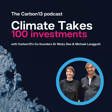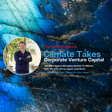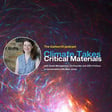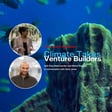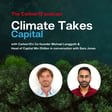
Climate Takes Ammonia
Welcome to Carbon13's podcast "Climate Takes" where we ask special guests for their "takes" on their industry and climate challenge, as well as setting a call to action, asking what will it take to solve the climate emergency?
On Climate Takes Ammonia, we're talking about the chemical that feeds half the world, is a $230 billion industry, and is key to a clean hydrogen future.
But which right now is the most polluting chemical process on earth.
To make one tonne of ammonia, two tonnes of emissions are generated.
But industry is so keen for Nium's clean ammonia, that they already have a $120 million project pipeline and $50 million in signed offtake agreements, while still at TRL 5.
We'll be getting the story behind those numbers and more, with CEO Lewis Jenkins.
We hope you enjoy the podcast and it becomes a catalyst for you for climate tech innovation too.
